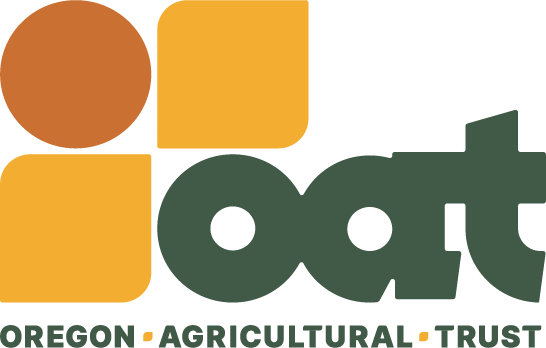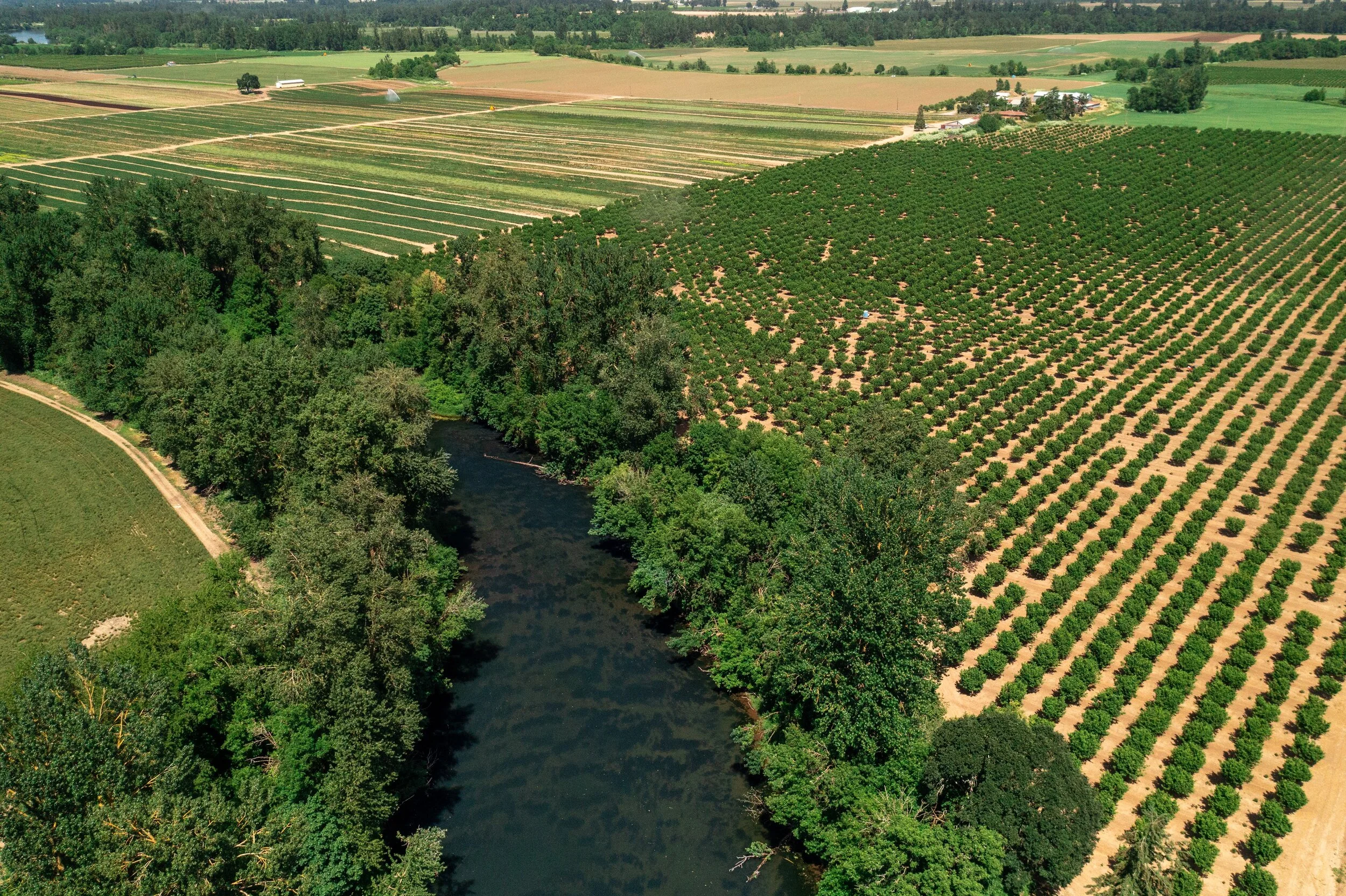By Justin Ferrell
Last summer we stopped by Valley Falls, Oregon to visit rancher Justin Ferrell and discuss an easement on his ranch property. It was a windy day and the thick wildfire smoke obscured the view of Abert Rim. We sat at Justin’s table as he shared some of his thoughts about easements and Oregon agriculture.
This video contains excerpts of Justin’s interview.
My name is Justin Ferrell. We're in Valley Falls, Oregon, located between Paisley and Lakeview Oregon in the Great Basin.
Our operation consists of a cow calf ranch as well as a hay ranch. We raise and sell natural black Angus cattle and we raise and sell dairy quality alfalfa hay and feeder hay as well.
I wish that the general public knew that the owners or the managers of farms and ranches have longevity in mind in the future. We're not here to abuse the land. We're using it as a way to sustain our family's income as well as a lifestyle. With the recent droughts and wildfire, and even flooding just a couple years ago here in the same places that are now on fire for us that were affected, it makes it hard to plan and hard to figure out the scope of what the future holds. We're kind of in limbo in a lot of ways.
We own a piece of land that has a subdivision on it that was originally a town site that is now part of our hay operation and cattle operation. We have concerns in the future that it could potentially be divided, which is not what we hope to see out of our land, and it's not what we want for the future of agriculture in this area. So we are exploring an easement to make sure that what we've put together and built stays in agriculture and doesn't turn into a subdivided neighborhood.
My advice for someone else considering an easement on their property for another producer, would be that to this point, working with Oregon Ag Trust, the continued use of agriculture has been the key in our discussions. It's not been based around strictly wildlife or other issues that we've seen on easements in the past. It has so far to this point been consistent with how to keep agriculture on the land and keep people involved in agriculture. I'm naturally a very skeptical person of easements. So to work through this process to this point where agriculture is the driving force, the continued use of agriculture has been very important and eye opening.
I think the Oregon Ag Trust’s impact on Oregon in the future would hopefully allow for those agricultural opportunities to continue to be on the land both for current and future operators. One of the things that our family really likes about this opportunity is there's a mechanism within these easements to allow for another younger person that might have the interest that maybe isn't family, or isn't blood related. To have a way into agriculture because the startup cost right now to try to get into agriculture is so expensive, that without outside money, your family heritage essentially, you're not going to have that opportunity. So this is a mechanism to possibly allow someone that has more drive to want to do this than someone that may just inherit it. Because just because someone may inherit, it doesn't mean they have the drive to do it.
People in Oregon should care about protecting working lands because it's the source of their food and fiber, and most are so far removed from that, so many generations removed, I don't think they appreciate how much food and fiber is actually produced right here in their own state that doesn't come from the grocery store. And these open spaces are extremely valuable, both from an agricultural standpoint and an ecosystems function standpoint. We need to be protecting things that provide us the food, fiber and shelter to exist. Without these open spaces on these working lands, we don't have that opportunity.

